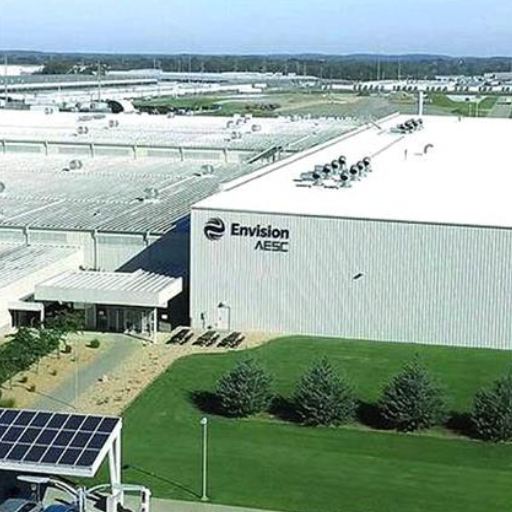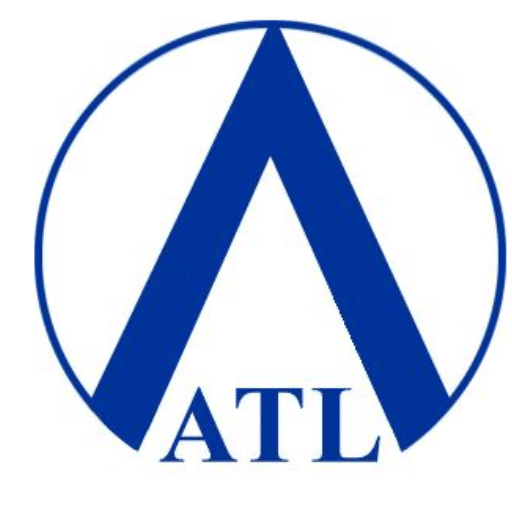An intense global need for efficient and reliable energy storage mechanisms has kept the battery manufacturing industry in the limelight. With advances in technology and sustainability goals, batteries are becoming the very core of modern-day life; they have fueled innovation in electric vehicles, renewable energy systems, and portable electronics. This article provides an in-depth look at the top ten battery makers paving the way for advanced technology. These giants deliver cutting-edge designs and spearhead green energy solutions on behalf of the industry while setting industry-wide benchmarks for testing energy storage solutions. Come and join the journey to learn about their contributions, innovations, and impact on the global transformation of energy.
1. CATL (Contemporary Amperex Technology Co., Limited)
Founded: 2011
Introduction: Based in Ningde, China, CATL is regarded as the leading name in lithium-ion battery development and manufacturing worldwide. They specialize in energy storage solutions and the manufacturing of batteries for electric vehicles, with a reputation for innovation and quality. CATL collaborates with major automotive manufacturers to deliver innovative solutions, new entry points in battery efficiency, and sustainable approaches.
Main Products: Lithium-ion EV batteries, energy storage systems, and battery management solutions.
Key Advantages: Advanced R&D capabilities, partnerships with industry giants, and a wide production scale.
Key Disadvantages: High production costs; dependency on the raw material supply chain.
2. LG Energy Solution
Founded: 2020 (Spin-off from LG Chem, initially founded in 1947)
Introduction: South Korean-based LG Energy Solution is one of the top companies in the battery industry that focuses on rechargeable lithium-ion battery technologies. Serving the electric vehicle, energy storage, and IT industries, LG Energy Solution has built a reputation for its advanced and well-tested solutions with a growing list of partnerships with leading global automakers.
Main Products: Lithium-ion batteries for EVs, energy storage, and consumer electronics.
Key Advantages: Strong R&D base, diversified product portfolio, and long-term partnerships with automakers.
Key Disadvantages: Price competitiveness and competition from emerging players.
3. Panasonic Energy
Founded: 1931
Introduction: An arm of the Panasonic Corporation based in Japan, Panasonic Energy is the name that battery manufacturing has trusted for decades. The company is recognized for its collaboration with Tesla and for producing high-quality lithium-ion and automotive batteries, as well as consumer-oriented battery products.
Main Products: Lithium-ion batteries, automotive batteries, and rechargeable consumer batteries.
Key Advantages: Established reputation, large-scale production plants, and strong partnership with Tesla.
Key Disadvantages: Lack of control over supply chain costs and increasing market competition.
4. BYD (Build Your Dreams)
Founded: 1995
Introduction: BYD is an integrated company in Shenzhen creating technologies for batteries, renewable energy sources, and electric vehicles. Innovation is a serious matter for BYD, especially with the innovative design of the “Blade Battery” technology gaining fame in the EV and energy storage industries due to its safer and better-performing battery.
Main Products: Lithium-ion EV batteries, Blade Batteries, and energy storage solutions.
Key Advantages: Vertical integration, focus on innovation, and strong position in the EV market.
Key Disadvantages: Heavy competition in the global market and high research and development (R&D) expenditures.
5. Samsung SDI
Founded: 1970
Introduction: Operating under the Samsung Electronics umbrella, Samsung SDI is a South Korean company that specializes in advanced battery technologies and energy solutions, ranging from automotive batteries to energy storage systems, demonstrating the company’s technical proficiency and commitment to sustainability.
Main Products: Lithium-ion EV batteries, energy storage batteries, and electronic components.
Key Advantages: Diversified product range, technological expertise, and synergy with Samsung’s ecosystem.
Key Disadvantages: High competition and dependency on raw material suppliers.
6. Tesla (Tesla Energy)
Founded: 2003
Introduction: Tesla, situated in Palo Alto, California, is one of the well-known brands globally for electric vehicles and energy storage systems. Under Tesla Energy, the group builds high-end lithium-ion battery packs for energy storage systems, residential, and EV applications, focusing on efficiency and innovation.
Main Products: Powerwall, Powerpack, and Megapack energy storage systems, as well as EV batteries.
Key Advantages: Advanced technology, seamless integration with EVs, and focus on sustainability.
Key Disadvantages: Expensive products and challenges in production scalability.
7. SK On
Founded in 2021 (but Hitherto Called SK Innovation, founded in 1962)
Intro: Rapidly growing in the battery industry, SK On Education System specializes in lithium-ion batteries for electric vehicles and energy storage solutions and is known for developing environmentally friendly and high-performance batteries.
Main Products: Lithium-ion EV batteries and energy storage systems.
Key Advantages: Powerful eco-friendly emphasis, technological R&D, and EV market growth.
Key Disadvantages: Limited public visibility and high competition.
8. AESC (Envision AESC Group)
Founded: 2007
Introduction: Formed in an alliance between Nissan, NEC, and Envision Group, AESC is characterized by its leadership in battery tech for electric vehicles. AESC is based in Japan and is a reputable company offering dependable and environmentally friendly battery solutions and green energy provision for Nissan Leaf EVs through its Envision AESC.
Main Products: Lithium-ion batteries for EVs and energy storage solutions.
Key Advantages: Good track record, sustainability, reliability.
Key Disadvantages: Relatively small scale compared to top competitors; reliance on key partnerships.
9. Northvolt
Founded: 2016
Introduction: Based in Sweden, Northvolt is an innovative company specializing in the production of sustainable lithium-ion batteries. Designed to reduce environmental impact, Northvolt aims to create the world’s greenest battery to serve the EV, energy storage, and industrial sectors.
Main Products: Lithium-ion batteries for EV and energy storage applications.
Key Advantages: Sustainability, emerging presence in the European market, and modern technologies.
Key Disadvantages: Relatively new in the market and experiencing scaling up in production.
10. Amperex Technology Limited (ATL)
Founded: 1999
Introduction: Based in Hong Kong, ATL is the world leader in designing and manufacturing rechargeable lithium polymer batteries. The company’s innovative, lightweight, and high-energy-density batteries can be widely used in electronics, performance-enhanced competition, and reliability.
Main Products: Lithium polymer batteries for smartphones, tablets, and consumer electronics.
Key Advantages: High energy density, lightweight designs, and consumer electronics.
Key Disadvantages: Limited exposure to the substantial EV and energy storage market.
Frequently Asked Questions (FAQs)
What are the top ten manufacturers of batteries in 2023?
Among the top ten battery manufacturers in 2023, CATL, LG Energy Solution, and Panasonic are among those leading the battery market with their state-of-the-art lithium-ion battery technology. These manufacturers play a pivotal role in supplying batteries for EVs and energy storage systems. The battery technology they have developed fosters demand for clean energy and efficient battery production. In parallel with the booming EV market, it will be these manufacturers that shall dominate the global power battery sector. Through R&D, these manufacturers will maintain a leading position amidst changing trends in the battery industry.
How do lithium-ion battery manufacturers influence the EV market?
Lithium-ion battery manufacturers influence the EV market by developing the required technology and components for electric vehicle battery systems. Manufacturers such as CATL and LG Energy Solution developed lithium-ion batteries that doubled the driving range of EVs and made them more efficient. Now, with the significant increase in the demand for electric vehicles, these battery producers are increasingly establishing battery plants, thereby ensuring battery popularity through their battery recycling programs. This ensures that there is a synergy between the supply chain of automobile manufacturers and battery manufacturers, which guarantees strengthening of the supply chain on end-market requirements.
Why is battery recycling important in the battery business?
The recycling of batteries has taken on much more significance due to the ecological impact of lithium-ion batteries. With the growing demand for battery production, it has also become imperative to extract valuable materials, such as lithium and cobalt, from old batteries to minimize waste. Battery companies leading the industry have invested in more evolved recycling techniques that enhance the recovery rate of materials. The promotion of battery recycling by manufacturers contributes to the creation of a circular economy, where resource depletion is reduced and the carbon footprint is lowered. Such practices not only help in greener battery manufacturing but can also be cost-efficient for raw material procurement.
Who is heading the battery innovation efforts?
The most prominent battery manufacturers, namely Tesla and Samsung SDI, are leaders in battery innovation, with a focus on improving energy densities and reducing costs. They are continually exploring new battery technologies, including solid-state batteries and lithium-iron-phosphate (LFP) batteries, which offer superior performance potential. Their heavy investment in R&D is indeed key in making next-generation batteries that would power EVs and energy storage solutions more efficiently. As technology matures, these manufacturers will want to develop a battery that lasts longer and charges faster to reshape the future of batteries.
What trends will drive the battery market in 2025?
Primarily, the battery market in 2025 will be shaped by trends in electric vehicles and advancements in battery technology. Increased demand for energy storage systems and renewable energy solutions will be crucial to the growth of lithium-ion battery production. Manufacturers will also drive enhanced battery efficiency and environmental improvements through sustainable practices and the recycling of batteries. Another worthy dimension will be a competitive one, whereby new entrants and the partnering of established battery companies with tech firms will probably spur innovative battery solutions to cater to the changing demands of consumers.
How do traditional lead-acid battery manufacturers measure up against lithium-ion battery manufacturers?
Traditional lead-acid battery manufacturers, therefore, primarily concern themselves with different battery market segments than do lithium-ion battery manufacturers. Where lead-acid batteries are used mainly in automotive starting and backup power applications, lithium-ion batteries are favored for their energy densities and long life, particularly for EV and portable electronics applications. While lithium-ion battery manufacturers push the boundaries of battery technology to achieve higher performance and weight reduction, making it the technology of choice for modern applications, lead-acid battery manufacturers are fighting back by developing advanced lead-acid technologies that can compete with lithium-ion in certain niche areas.

















